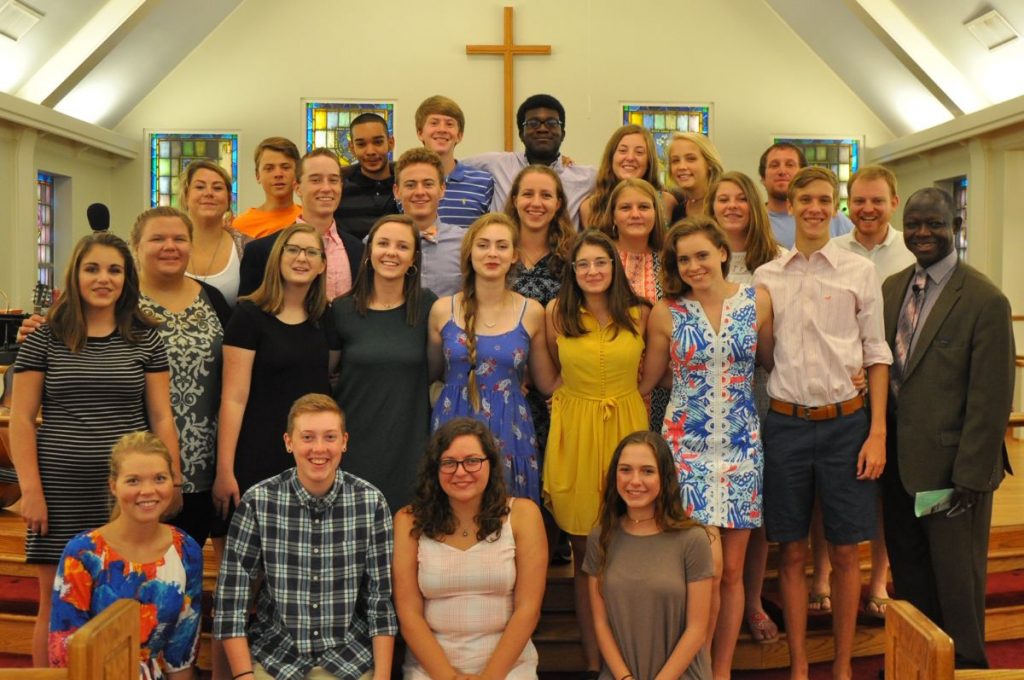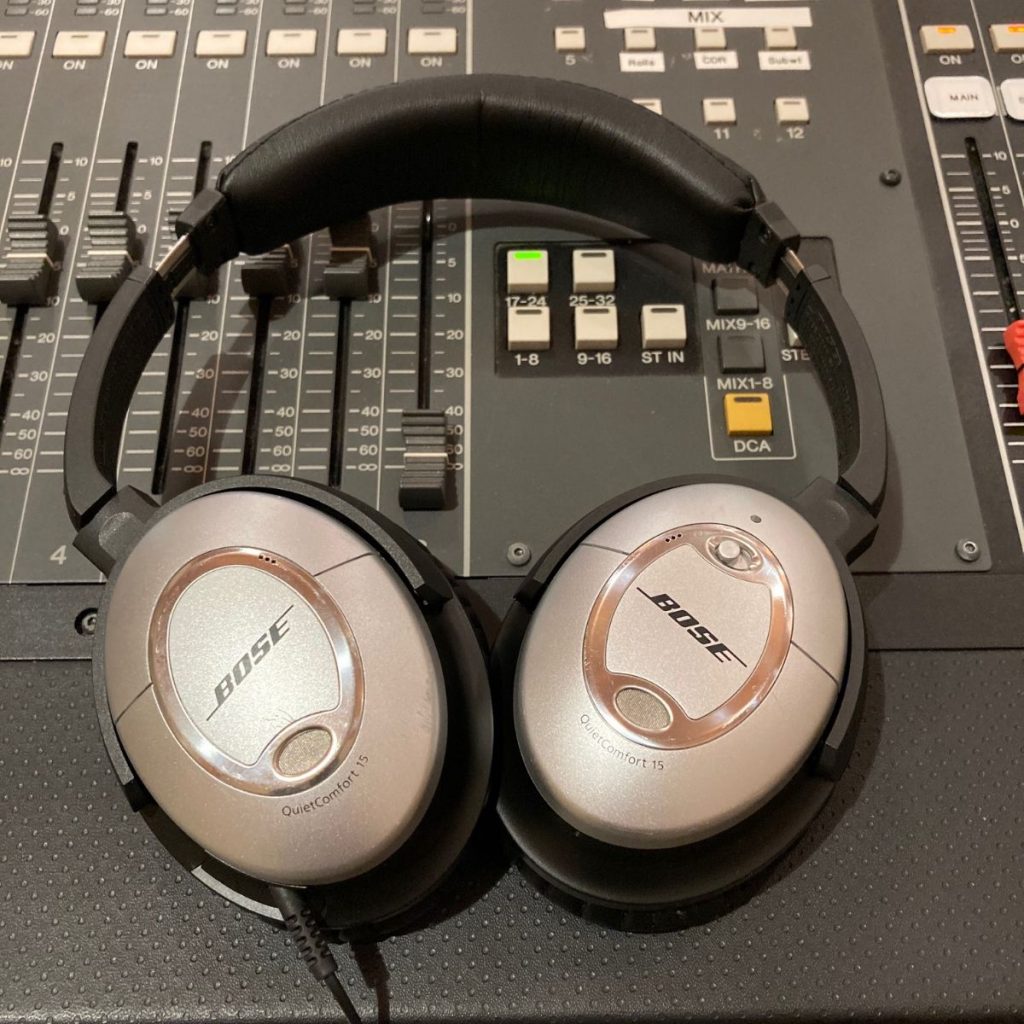There is a Spanish word that usually gets translated as “tip” (as in leaving the waiter a good tip), but which we use in Ecuador almost exclusively the way English speakers would say “a free gift.” It’s commonly something a business uses in their marketing. “Buy a refrigerator and we’ll throw in a toaster. It’s a yapa.”
Yapas are also sometimes an extra piece of bread in your order, they way we’d call it a “baker’s dozen.” But people are so used to this expression, it can be anything you get as a bonus or a surprise. Samples at the grocery store? Yapa! Onion ring in your fries? Yapa! Mysterious leftover parts when you’re done constructing that IKEA furniture? Yapas! I hadn’t thought about this concept for a while, until I had one of those extra-things-in-my-bag experience at a fast food place this week. I pulled out the unexpected item and didn’t think “aw, man, how else have they messed up my order?” (the way I probably once would have reacted), I just surprised myself a little and said “Una yapa!”
Jesus was constantly telling people to look at things differently. Even in our very out-of-the-ordinary scripture lesson for this Sunday, he tells people “you judge-y guys want to chuck me aside, but now look how big and bad I am” (that’s from the Danny Peck Translation). He was unexpected, but in the best way. May we recognize Jesus when he shows up in our lives. And may we excitedly say “una yapa!”
Author: Danny
Awake
One of the texts for this Sunday is Romans 13:8-14. The passage includes the words “it is now the moment for you to wake from sleep,” and it may or may not be Paul’s reference to Jesus’ parable of the 10 bridesmaids. Either way, the phrase “wake up” reminds me of some music inspired by those words.
Philipp Nicolai wrote a hymn which is commonly translated into English as Wake, Awake, for Night Is Flying, and in 1731 J.S. Bach wrote a cantata based on it, which we call Sleepers, Awake. It is a beautiful composition that is one of my all-time favorite pieces to play in an orchestra. But more amazing to me than the composition itself is that Bach wrote it to be played on the Twenty-Seventh Sunday after the Trinity, a week in the liturgical calendar that can only happen when Easter falls extremely early. It happens so rarely, in fact, there there was only one more 27th Sunday after the Trinity in Bach’s lifetime, and so he only performed the piece once. Bach was so “awake,” and ready to serve God, he wrote an incredible piece he knew would have limited usefulness, but which far outlived him and his expectations for it. Here I am playing it 289 years later. We never know what God will do with our gifts, so may we be awake and ready to serve.
Make Lots of Noise and Pray

Sometimes I would leave my house in Quito and the traffic lights would look like this all the way down my street. Red lights and green lights both aglow in every direction at every intersection.
I chose never to get my Ecuadorian driver’s license for a number of reasons. This was one of them. But I asked someone I worked with once “what do you do when this happens?” And they shrugged their shoulders and responded basically that they would hit the gas, honk their horn to make lots of noise as they went through the intersection, and pray.
Last night we finished up our study on the book of James. And in the final chapter, James tells his audience to go to God in all kinds of circumstances. When they are sick, when they are celebrating, and when they’re in trouble. To sing songs of praise and to ask him for what they need. To “make lots of noise and pray.” We can pray when the light is green. When the light is red. And even when we’re getting conflicting signals. God’s the one who knows which way he’s trying to send us.
Not Done

Bishop Jonn Yambasu, leader of the Seirra Leone Annual Conference of the UMC, died this week. That’s him on the right of the photo next to me at Wrightsville UMC in August 2016. I got to meet him and talk to him that weekend, and I’ve heard him preach and speak at annual conferences and other events since then. Bishop Yambasu was also the person responsible for bringing together the group who wrote the “Protocol of reconciliation and grace” after General Conference 2019. He was upset with how poor a witness of Christ’s love he thought that Conference had been to the world, and he wanted us to be better, so he felt compelled to do something about it and gather those leaders. As the Council of Bishops, the United Methodist New Service, and other groups have published articles about him over the past few days, I keep seeing phrases about the pandemic interrupting the approval of that protocol, and about how Bishop Yambasu’s work was not done.
My impression of Bishop Yambasu is that he wouldn’t mind his work not being done. He was a leader who sought peace, and that’s a job that’s never done. And he was a leader who expected that the next generation of believers would be, as the Psalmist soberly yet hopefully wrote, better than those who came before. May we know that our part in God’s reconciliation of the world is not done. May we be better than those who came before. And may we teach the next generation to be better than ourselves.
Listening

As we have all gotten lots of practice with cameras and microphones and editing software, we’ve all encountered some bumps. Last week I tried to record some music while wearing headphones plugged into the sound system. This week Chip tried recording his own voice with the headphones on. Neither of us were successful the first time. There is just enough delay in the signal getting back to the headphones, you get confused trying to listen to yourself in the room and listen to yourself on the headphones (a split second behind). Keeping any sort of speaking/singing rhythm is difficult to impossible. It’s like that little echo you’ll get in a Bluetooth phone conversation, but a thousand times worse. You just can’t get anything done if you continue to try to listen to all these voices coming back at you. You have to flip a switch in your brain and only listen to the right voice and filter everything else out.
I didn’t mean to become a recording expert. I also didn’t mean to get hung up in the book of 1 Samuel. But Samuel had to learn how to listen to the right voice as well. When he hears a voice repeatedly, Eli has to tell him the correct response: “Speak Lord, for your servant is listening.” Most of us are familiar with that story, or at least that line. But I love how that part of the passage ends, with God telling Samuel he’ll do something that will “make both ears of anyone who hears it tingle.” May we listen to the right voice. May our ears tingle.
A New Heart

Last week I wrote about Samuel anointing Saul in the 10th chapter of the book of 1 Samuel. But it turned out this week I would keep coming back to a few words in that chapter which I hardly noticed the first time I read them. Samuel was anointing Saul to prepare him to go do God’s work. To be king of God’s people. But Samuel and Saul are really just witnesses to what God is doing all along. It wasn’t the anointing that made Saul king. It was God. The NIV says Saul was “changed,” and the Message translation say he was “transformed.” But in verse 9 the NRSV tells of God’s work in Saul with this set of words: “God gave him another heart.”
Our congregation has been praying for Kim H. to literally get a new heart this week, and she did. I can’t help but wonder what God is preparing her for in the days and weeks to come (no pressure, Kim!). And I can’t help but wonder what he’s preparing us each for. May we look for a new heart from God. And may we continue to be transformed.
Get It Off

One of the scripture readings for the day in the Common Prayerbook was 1 Samuel 10:1-16, which begins with Samuel anointing Saul. “Anointing” sounds nice, and it is when we do it in worship (we use a small amount of balm to make the sign of the cross on the forehead of newly Baptized members). I just don’t imagine it was nice when Samuel poured a whole vial of oil over Saul’s head. If I were Saul in that situation, as soon as that oil started running down my face I’d be thinking “Get it off, get it off getitoff, GETITOFF, GET IT OFF!”
Sometimes we react that way to God’s blessings as well. I don’t like to be messy, even when I’m being blessed. And neither did all of the people of faith throughout scripture. For every Stephen facing down the Sanhedrin and his fate, there’s a Jonah running from his call. I don’t remotely think that God sent the novel coronavirus. I do think we can find God’s blessings even in this time. Even if they’re messy. And I think we can continue to live our calls to love God and his people each and every day, even from six feet away.
How Long?
Each December various writers put out their lists of words they think should be retired. Words the author thinks we as a people have overused in the last twelve months. And as my Conference Youth Events Staff t-shirt came in the mail this week I both laughed and sighed, because the shirt included a word I’m ready to retire: virtual. I do actually love this t-shirt. But it’s a reminder of canceled and converted-to-online events from March until now.
I got this shirt because I staffed Breakaway, an event specifically focused on worship. And so I turn to the original worship resource book of God’s people, the Psalms. In Psalm 13 the writer asks “How long must I hear pain in my soul, and have sorrow in my heart…?” This psalmist is talking about literal enemies triumphing over him, and while our enemy is much more figurative, we’re probably equally bummed about it.But the psalmist doesn’t stop with that idea and neither should we. He’s honest before God about his sorrow and his questions, but goes on to say “…I trusted in your steadfast love; my heart shall rejoice in your salvation.” God’s love is steadfast. Let our hearts choose to rejoice in him who remains the same… even when nothing else does.
Shortage and Abundance

I am a millennial who rarely uses cash, so I might be behind the times on this one. But I heard this week about the “coin shortage” going on across the United States right now. Business are having trouble giving change because there just aren’t enough coins in circulation at the moment. And as I read about why, it turns out it’s not because production of coins is down. The U.S. Mint ramped up production this month. The problem has much more to do with the fact that 83% of the coins needed across our economy come from being recirculated by people doing everyday business.
It’s not that the coins aren’t there. We just have to trust that they’ll appear again. Our coins themselves even tell us who to trust (just look what’s next to the picture of Washington on a quarter!). Paul said in his prayer for the Ephesians “Now to him who by the power at work within us is able to accomplish abundantly far more than we can ask for or imagine, to him be the glory in the church and in Christ Jesus to all generations, forever and ever. Amen.”God’s still here too. There’s plenty of his presence in circulation. Even in seeming scarcity and shortage we can trust in God’s abundance.
What Day Is It?

I can’t be the only one who has asked recently “what day is it?” When our usual sense of rhythm and routine is gone, it’s hard to know the answer sometimes. But I’ve been asking that question more often as I’ve been recording Christmas music this week for ACS (our theme this year is “Christmas In July”). It’s odd playing my guitar in 90° weather and singing Silent Night. So when I ask “what day is it?” I feel like Ebenezer Scrooge at the end of A Christmas Carol, when he is genuinely confused about whether it is Christmas day or not.
But that got me thinking some more about A Christmas Carol. And this may be a controversial statement, but I believe the Muppet version to be the definitive film interpretation of that story. Michael Caine deserved an Oscar. Especially at the end of his encounter with the Ghost of Christmas Future, when he emotionally says “I will honor Christmas, and try to keep it all the year!” He learns over the course of that journey that he is not beyond hope, and to respond to the Grace extended to him with generosity and love.
So what day is it? Who knows! But it might as well be Christmas. So “hold [him] close in a thankful heart.”
